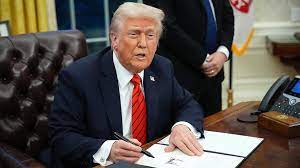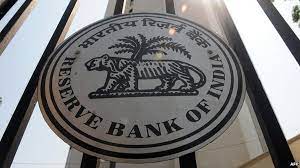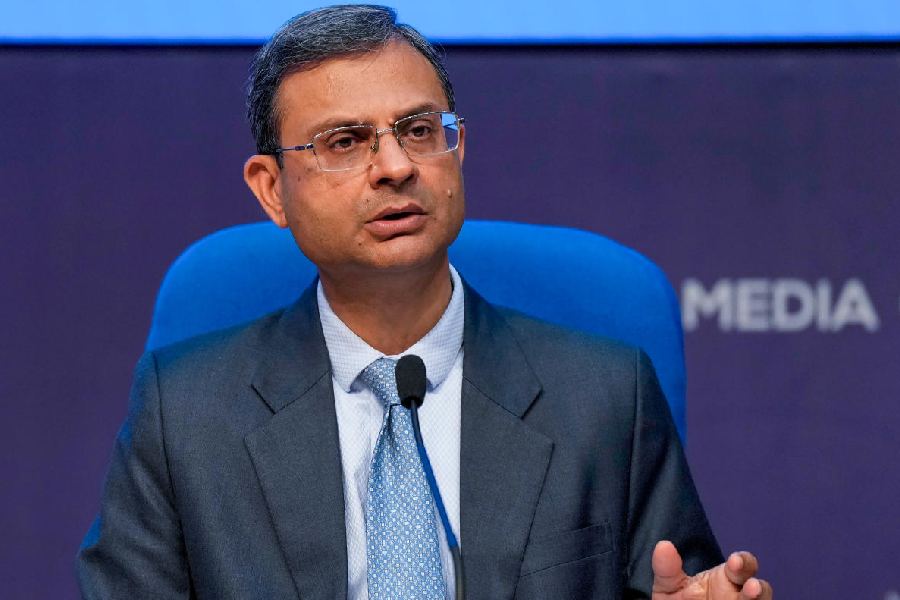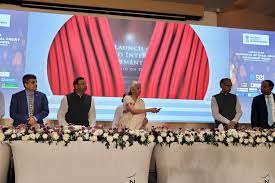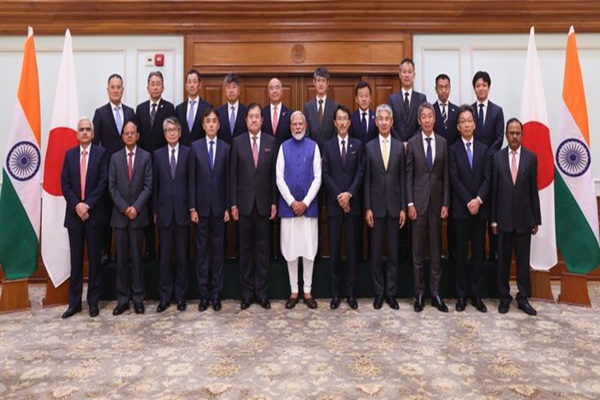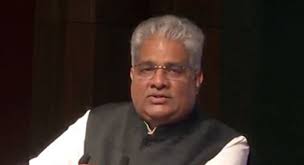Vedanta-Foxconn to invest Rs 1.54 lakh crore in India’s first chip factory
Wed 14 Sep 2022, 12:49:05

Ahmedabad/New Delhi: Mining conglomerate Vedanta and Taiwanese electronics manufacturing giant Foxconn will make one of the largest ever investments of Rs 1.54 lakh crore in setting up India’s first semiconductor plant in Gujarat.
The 60:40 joint venture of Vedanta-Foxconn will set up a semiconductor fab unit, a display fab unit, and a semiconductor assembling and testing unit on a 1000-acre land in the Ahmedabad district.
“The plant will start production in two years,” Vedanta chairman Anil Agarwal told PTI after signing the Memorandum of Understanding (MoU) with the Gujarat government on Tuesday.
Semiconductor chips, or microchips, are essential pieces of many digital consumer products – from cars to mobile phones and ATM cards. The Indian semiconductor market was valued at USD 27.2 billion in 2021 and is expected to grow at a healthy CAGR of nearly 19 per cent to reach $64 billion in 2026. But none of these chips is manufactured in India so far.
A massive shortage in the semiconductor supply chain last year affected many industries, including electronics and automotive.
To cut dependence on imports from nations like Taiwan and China, the government brought a fiscal incentive scheme for manufacturing semiconductors in the country. Vedanta-Foxconn is one of the successful applicants for the Production Linked Incentive (PLI) scheme for semiconductors.
“This is the largest ever investment in Gujarat… ours will be the first semiconductor plant in the country,” Agarwal said, adding local manufacturing of chips will make laptops and tablets affordable.
Agarwal said the Gujarat unit will manufacture 40,000 wafers (that’s used in fabricating integrated circuits) and 60,000 panels per month to begin with. Prime Minister Narendra Modi hailed the MoU as one that will boost the economy and create jobs.
“This MoU is an important step in accelerating India’s semi-conductor manufacturing ambitions. The investment of Rs 1.54 lakh crore will create a significant impact to boost the economy and jobs. This will also create a huge ecosystem for ancillary industries and help our MSMEs,” he tweeted.
Besides Vedanta, a consortium comprising Dubai-based NextOrbit and Israeli tech firm Tower Semiconductor has signed a deal with the Karnataka government for a plant in Mysuru while Singapore-based IGSS Venture has chosen Tamil Nadu as the location for its unit.
Gujarat Science and Technology Department Secretary Vijay Nehra, who signed the MoU on behalf of the state government, said 8 per cent of all the chips used in the world are manufactured in Taiwan, followed by China and Japan.
“This upcoming facility will mark the beginning of chip manufacturing in India. This is also strategically important for India because it will reduce our dependence on other
countries.” Out of the total investment, Rs 94,000 crore will go into setting up the display manufacturing unit while Rs 60,000 crore will be invested in the semiconductor manufacturing facility, the official said.
countries.” Out of the total investment, Rs 94,000 crore will go into setting up the display manufacturing unit while Rs 60,000 crore will be invested in the semiconductor manufacturing facility, the official said.
As per the MoUs signed by both parties, the Gujarat government will facilitate the investor in obtaining necessary permissions and clearances from the state departments concerned.
“The Gujarat government will also extend fiscal and non-fiscal incentives and benefits as outlined under the Gujarat Semiconductor Policy-2022. Gujarat is the only state to have such a policy exclusively for the semiconductor industry,” Nehra said.
Gujarat Chief Minister Bhupendra Rajnikant Patel assured his government will provide cooperation to the investing entity in setting up the facility and make it a success.
“We will provide all help to the joint venture so that the plant can start its operations soon. We are determined to make our country more self-sufficient in tech and curb our reliance on imports from other countries. We sincerely hope that the hub will be the beginning of a bright future and attract investment from other multinational companies down the line,” he said.
In his address, Union Telecom and IT Minister Ashwini Vaishnaw said the Prime Minister has set a target of creating one crore job opportunities in the electronics manufacturing sector.
“When Prime Minister Modi launched Digital India (initiative) nearly seven years back, we used to wonder where this journey would take us in future, because the PM’s thought process was completely different,” he said.
The journey started with initiatives like Startup India and Make In India, said Vaishnaw. Today, India has 70,000 startups, including 100 unicorns, said the minister, adding that India has become the second largest mobile phone manufacturer in the world.
He said Indian companies manufacture electronics goods worth Rs USD 80 billion, or nearly Rs 6,00,000 crore, every year. “Under the PM’s leadership, we created such an ecosystem which has created 25 lakh jobs in the electronics sector alone,” he said.
“Now the PM has given a target of taking the number from 25 lakh to one crore. To do that, we are working on taking electronics production from the present USD 80 billion to USD 300 billion, which roughly comes to Rs 25,00,000 crore,” Vaishnaw said.
Globally, countries such as the US are boosting domestic manufacturing capacity to cut reliance on imports. A global semiconductor shortage and geopolitical tensions with China have bolstered Washington’s drive to bring manufacturing back to American soil to regain leadership.
The US has earmarked billions of dollars and is reportedly looking at alliances with other nations.
No Comments For This Post, Be first to write a Comment.
Most viewed from Business
AIMIM News
Delhi Assembly polls: Owaisi leads Padyatra in Okhla
Feb 01, 2025
We reject this Waqf Amendment Bill: Asaduddin Owaisi
Jan 30, 2025
Latest Urdu News
Most Viewed
May 26, 2020
Which team will win the ICC Men's Champions Trophy 2025 held in Pakistan/Dubai?
Latest Videos View All
Like Us
Home
About Us
Advertise With Us
All Polls
Epaper Archives
Privacy Policy
Contact Us
Download Etemaad App
© 2025 Etemaad Daily News, All Rights Reserved.


